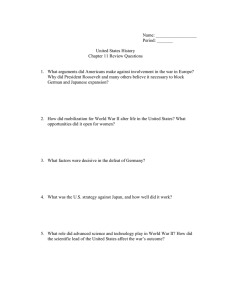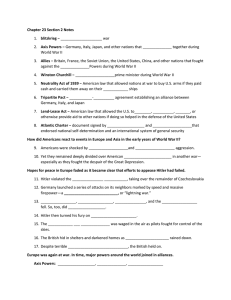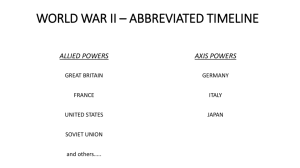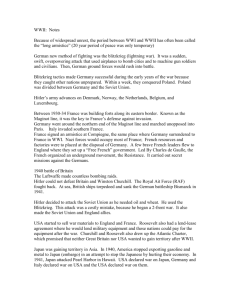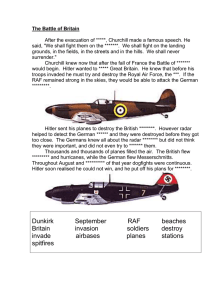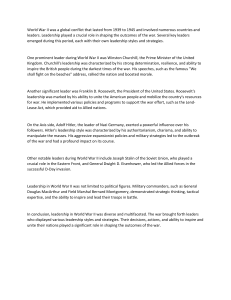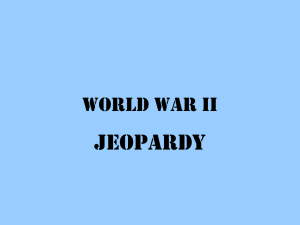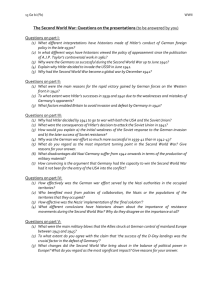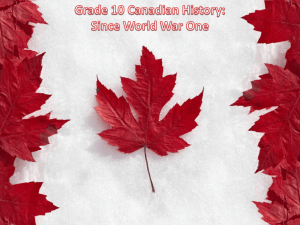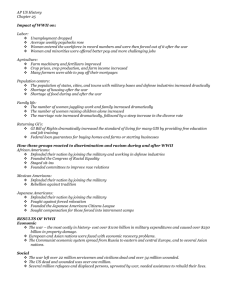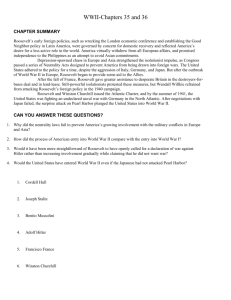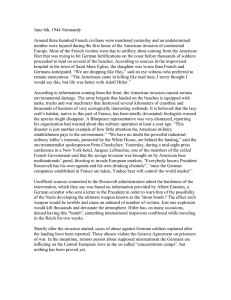World War 2
advertisement
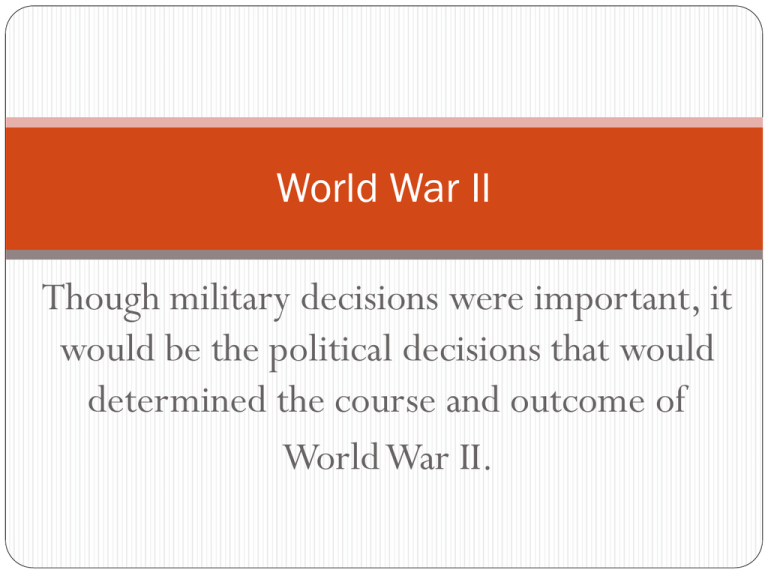
World War II Though military decisions were important, it would be the political decisions that would determined the course and outcome of World War II. Allied Decisions Roosevelt and Churchill decided at the beginning of the war that the war in Europe would have priority over the war in Asia. Roosevelt and Churchill decided that their initial offensive would be in North Africa and southern Europe despite Stalin’s request for a western European invasion. This decision most likely prolonged the war in Europe. This decision was perceived by the Soviets as an effort to weaken both the German and Soviet forces in Europe thus improving the Western powers chances of having military supremacy in Europe following the war. This decision undermined the Grand Alliance and foreshadowed the Cold War. Roosevelt and Churchill decided that both Germany and Japan would have to surrender unconditionally. This meant that no separate treaties would be signed and became particularly important when the Soviet Union joined the Grand Alliance in 1941. The demand for unconditional surrender meant that the fighting would go on until that end. The Germans fought intensely until the suicide of Hitler in April 1945. The Japanese fought with such determination and courage and this played (a) part in Truman’s decision to drop atomic bombs on two Japanese cities. Hitler’s Decisions Hitler's refusal to allow the German army at Stalingrad to retreat lead to a disastrous defeat. It was the first major defeat of the German army in World War II. Soon after the Soviets went on the offensive. German government also pursued its ideological goal of the extermination of the Jews from 1942 to 1944. This was a crucial period in the war in which Germany needed all the resources of the state to wage war.
